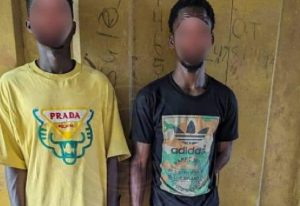By Godwin Owusu Frimpong
Democracy in Ghana is a frequent topic of conversation. It resonates at political rallies, community events, and across social media platforms. However, the question remains: is it truly benefiting the citizens?
Political Leadership: A Stage for Showmanship
Ghana’s political scene often resembles a dramatic play, where politicians strut their stuff, promising change during election campaigns but fading into the background once the votes are counted. Politicians are supposed to serve the public, yet many seem to prioritize their ambitions over the everyday struggles of the people. Streets remain unpaved, schools are underfunded, and healthcare systems are crumbling while politicians engage in power struggles. This raises the question: Is democracy functioning, or is it just a facade?
Traditional and Chieftaincy Conflicts: A Tension Point
While politicians bicker, traditional leaders hold significant sway in communities. Yet, chieftaincy disputes are causing rifts among these leaders, creating tension where unity is most needed. Some traditional leaders are supposed to guide their communities, but instead, they sometimes contribute to divisions. This chaos distracts from the real issues facing their people, leaving many feeling lost in a political and social wilderness.
Societal and Religious Leadership: Building Bridges or Burning Them?
Societal leaders and religious figures are tasked with lifting communities, providing direction and comfort. Yet, their actions can either heal or harm. The youth look to these mentors for guidance, but when religious leaders focus on divisive doctrines instead of fostering inclusivity, the impact can be damaging. Young people are caught in a tug-of-war between outdated beliefs and the modern world, and they are desperately searching for role models who genuinely care about their future.
Organizational Leadership: The Hidden Warriors
Organizations also play a critical role in shaping the landscape. Whether abroad or locally, NGOs and community groups often pick up the slack left by ineffective political and traditional leaders. However, they too face challenges in maintaining transparency and relevance. The question remains: Are they truly lifting the youth, or are they just another layer in a complicated hierarchy?
The Youth: The Overlooked Hope
Amidst these towering layers of leadership and conflicts, the future of Ghana rests squarely on the shoulders of its youth. They are the dreamers, the thinkers, and the doers waiting for a chance to shine. Yet, many feel disheartened, seeing their leaders squabble while their hopes seem to slip away. It’s crucial that political, traditional, religious, and organizational leaders stop talking and start listening.
The Path Forward: Breaking the Cycle
Ghana stands at a crossroads. It’s time for leaders at all levels to step out of the insular world of politics and leadership jargon and connect with the people. True democracy isn’t only about voting; it’s about accountability, unity, and genuine service to the people. By fostering collaboration and addressing the pressing needs of the population, Ghana can build a future that empowers its youth instead of leaving them behind.
The myth of democracy in Ghana can only be dispelled with an authentic commitment to the people. Leadership, in all its forms, should be about service, not spectacle. The time has come for leaders to rediscover their purpose: to empower, unite, and inspire a nation that deserves better.
Godwin Owusu Frimpong




